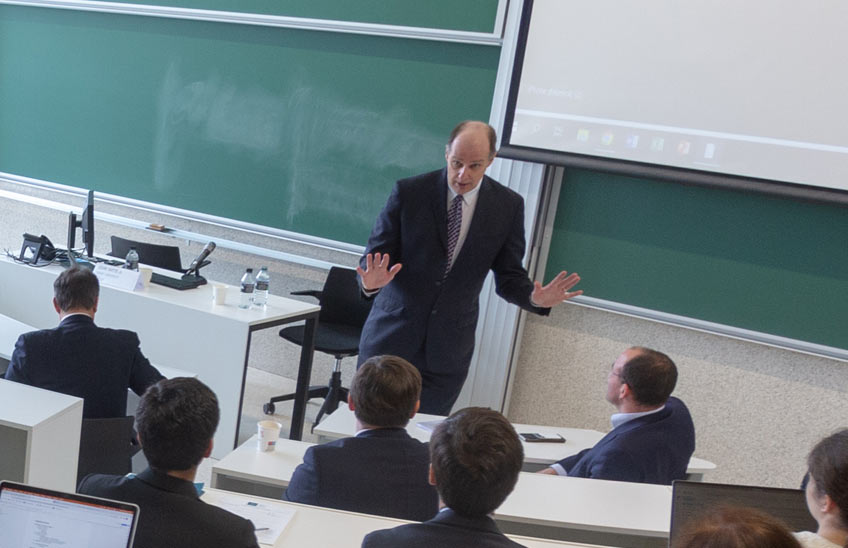"The protection of religious freedom guarantees the protection of other human rights, such as freedom of expression or freedom of association"
The director of the Center for the Study of Law and Religion at Emory University (USA), John Witte, addressed in a lecture at the University of Navarra the fundamental principles and challenges of religious freedom in America.

PhotoManuelCastells/Professor John Witte, in a moment of the lecture lecture at the University of Navarra.
27 | 09 | 2022
Religious freedom in America and the challenges it faces were the focus of Professor lecture . John Wittedirector of the Center for the Study of Law and Religion at Emory University (USA), at the University of Navarra, in an event organized by the School of Law at partnership with the Chair Álvaro d'Ors of Institute for Culture and Society (ICS). "Religious freedom has better forecasts than 30 years ago. Then it was subordinated to other new rights, such as sexual freedom. In the last 15 years, the Supreme Court has given more protection muscle to religious freedom, it has been very actively involved with it," he said. Not surprisingly, "the protection of religious freedom guarantees the protection of other human rights, such as freedom of expression or freedom of association," he said.
An internationally recognized specialist in the fields of History of Law, human rights, marriage and family law, and the relationship between law and religion, Witte gave a historical overview of religious freedom legislation and the fundamental principles on which it is based.
agreement He spoke of freedom of conscience and its three modes of application: voluntariness, "religion is something you choose, not something you inherit or that is determined by your social status," he explained; non-coercion, not being forced directly or indirectly to accept a particular form of faith; and exemptions, "sometimes laws have an impact on a person's ability to act in accordance with their conscience," he said.
Religious pluralism
Witte then referred to the freedom to exercise religion and the pluralism and diversity of religions. "The founders insisted that a multitude of forms of religion should live together in the community," he stressed. "They also insisted on the concept of equality, of non-discrimination, of non-preference. There cannot be one faith that the state determines as preferential."
Professor Witte addressed church-state separation as embodied in the U.S. Constitution. "The founders insisted on this separation for two reasons: one, they wanted to protect the church from the state, they wanted to make sure that religious bodies incorporated free exercise autonomy; and two, they wanted to protect the state from the church." Another principle to which Witte referred was that of nondeterminism of doctrine, in the sense of making sure that the government does not participate in any form of religion.
Witte advocated finding a balance in legislation as a guarantor of religious freedom: "Religious freedom in constitutions is like a pendulum. You have to be careful that the arc doesn't go too far because then it goes just as far in the opposite direction," he concluded.

